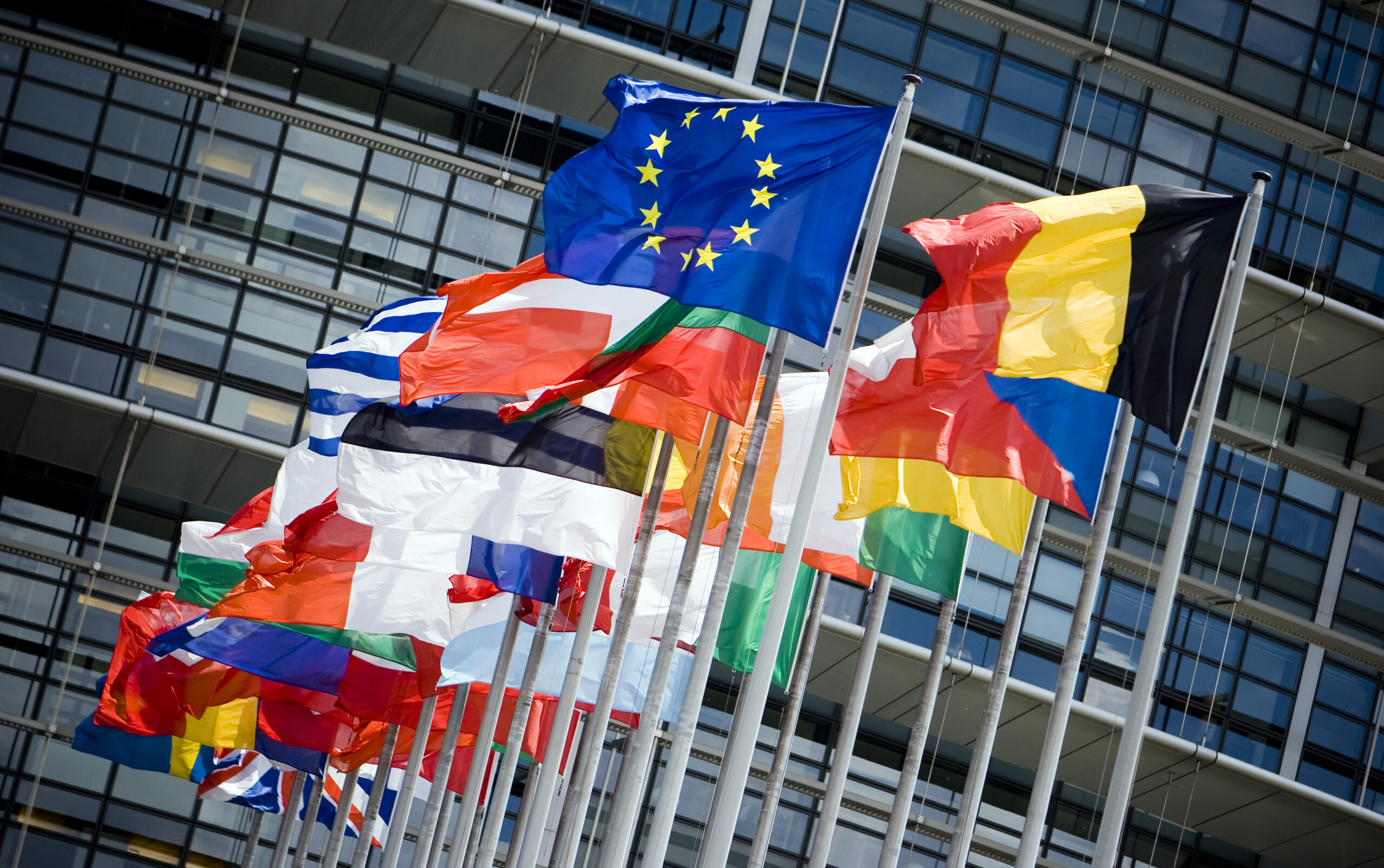Blog Archive

Time to put EU legislation in the limelight
Ton van den Brink and Dorin-Ciprian Grumaz
EU legislation has long been the forgotten stepchild in EU law and the study thereof. Given the major transformations it has undergone and an ever more complex relation to national law, it is time to put EU legislation in the limelight, argue Ton van den Brink and Dorin-Ciprian Grumaz.
Read more
DMA: a step forward in ensuring swift intervention in the digital sector but flexibility is key
Carla Farinhas
This blogpost is part of a series of short commentaries on the European Commission’s proposals for a Digital Markets Act and a Digital Services Act, released on 15 December 2020. Stay tuned for more.
Competition law enforcement takes too long
The Commission has heavily fined large technology companies for breach of competition rules in recent years. However, it is common ground that the protection of competition in the digital sector is at risk. There are gaps in the existing rules, but one of the main difficulties is the fast-changing pace of digital markets which is at odds with the time it takes to complete case-by-case full-fledged investigations.
Cases that take years to decide risk being all for naught if the practices harm competition in an irreparable manner while the investigation is ongoing. However, streamlining investigations in the digital sector is not easy. Cases tend to raise new and complex issues and the authorities always need to gather solid evidence to prove that the rules have been breached and follow due process.
Read more
Solidarity during the Covid-19 crisis within the European Union – a legal principle or just a pivotal political aspiration?
Anne Joppe
The principle of solidarity is called upon mostly in times of crisis, as happened, for example, during the Eurozone crisis and the refugee crisis. During the current crisis as a consequence of the Covid-19 outbreak, the EU calls again for solidarity among the Member States to combat the pandemic. Global solidarity is mentioned also as a sort of founding value of the EU vaccines strategy.
Nevertheless, it is unclear what the principle actually entails. The situation after the Covid-19 outbreak allows to investigate whether there is indeed a legal value or notion of European solidarity that can be enforced, whilst we also see national reflexes of protecting the own citizens and market in times of crisis. The latter seems to prevail in the dispute between the EU and the UK about the AstraZeneca vaccine, for instance. Where the EU calls on a fair and ‘solidary’ distribution of the vaccines throughout Europe, the UK seems to prioritise its own programme and wants the company to favour the UK, even though that might threaten the relationship with the EU.
Read more
The DSA and future enforcement of EU consumer protection law
Bram Duivenvoorde
This blogpost is part of a series of short commentaries on the European Commission’s proposals for a Digital Markets Act and a Digital Services Act, released on 15 December 2020. Stay tuned for more.
On 15 December 2020, the draft Digital Services Act (DSA) was published by the European Commission. The DSA will regulate digital services that act as intermediaries, connecting consumers with goods, services and content. Amongst other goals, the DSA aims to provide better protection to consumers online and should lead to a fairer digital market. What will the DSA mean for the future enforcement of consumer protection law through and against platforms? These are my initial thoughts on this topic.
Read more
The New Pact on Migration and Asylum: a paradigm shift in regulation and enforcement?
Salvatore Nicolosi and Paul Minderhoud
Last September 2020, the European Commission unveiled the New Pact on Migration and Asylum to commit the EU and its Member States ‘to build a system that manages and normalises migration for the long term.’ A fierce criticism has been already raised by scholars and civil society, claiming that this political platform is all but new and definitely unfit for the ‘fresh start’ sought by the Commission. In an attempt to contribute to this thriving debate, this post raises doubts on whether the Pact constitutes an effective paradigm shift in regulation and enforcement for EU asylum and migration law. As will be illustrated, the Pact reflects a regulatory framework that does not fix the existing divergences between the Member States, while at the enforcement level the approach is still precarious both as to the role of EU agencies and a strategy to ensure Member States compliance.
Read more
The potential of shaping a comprehensive Digital Single Market with the long awaited Digital Single Market Act
Sybe de Vries
This blogpost is the second in a series of short commentaries on the European Commission’s proposals for a Digital Markets Act and a Digital Services Act, released on 15 December 2020. Stay tuned for more.
Twenty years ago, when the widespread use of the Internet was still in its infancy, the EU legislator adopted the e-Commerce Directive. This Directive has been the foundational EU legal framework for online services in the internal market ever since. Now, with the eagerly awaited Proposal for a Regulation on a Single Market for Digital Services (DSA) the question is whether this legal instrument will be able to address the current and future digital challenges of the EU’s internal market. I will briefly discuss the relevance of the DSA’s legal basis in addressing the specific features of the Digital Single Market (DSM), particularly with a view to attain a more comprehensive DSM.
Read more
Google versus uitgevers – You ain’t seen nothing yet
By Stefan Kulk
Het persuitgeversrecht behoort samen met het ‘uploadfilter’ tot de meest controversiële onderwerpen in de auteursrechtrichtlijn die dit voorjaar werd aangenomen. Het persuitgeversrecht is een nieuw naburig recht voor uitgevers van perspublicaties dat specifiek betrekking heeft op het ‘onlinegebruik van hun perspublicaties door aanbieders van diensten van de informatiemaatschappij’. Zonder een eigen naburig recht is het voor persuitgevers een hele klus om aan te tonen dat zij beschikken over de auteursrechten op de vele online artikelen die zij publiceren. Uitgevers kunnen bovendien niet altijd over auteursrechten op artikelen beschikken als zij werken met freelancejournalisten. Dat alles maakt het moeilijk voor uitgevers om hun investeringen terug te verdienen en hun maatschappelijke functie als facilitators van een vrije en pluralistische pers te vervullen. Daarvoor was dus een nieuw zelfstandig exclusief recht voor persuitgevers nodig.
Read more
Brexit and the ways forward for the UK and EU agencies
By Lisette Mustert, Béla Strauss, Miroslava Scholten and Matthew Wood
Brexit raises the question of which way forward for the UK in its relationship with the EU and with EU agencies. For future research and legislative design, this in turn raises a more fundamental question of when which type of agreement between a third country and EU agencies is appropriate, in light of factors such as salience and the interests on both sides. Having analysed all EU agencies’ founding acts, we show in this post that there are three types of formal relationships that exist at this moment between EU agencies and other countries: full membership, observership and cooperation. We argue that the type of this relationship would vary for the UK depending on the score of ‘Brexit salience’, a concept that we introduce. The higher the ‘Brexit salience’ rating is, the more formal the arrangement – full membership or observer – the UK (and the EU) would need to have with an EU agency. According to our scores, this would concern the European Medicines Agency (EMA) and the European Aviation Safety Agency (EASA). In the case of EU agencies that score low on our salience rating, the UK (and the EU) would want to opt for a relatively limited form of cooperation with EU agencies. This would be the case for Cepol, EIGE, ACER, Frontex and CPVO. Surprisingly, the seemingly highly salient agency in the public debate – the European Border and Coast Guard Agency (also known as Frontex) – scores the joint lowest rating. How is this possible, when for the UK immigration is so important during the Brexit vote? It is because, first, our Brexit salience measures do not focus on what is salient in general for the British or European public. Rather, we are concerned with practical matters of policy implementation. As a matter of policy, Frontex has a clear and well-resourced opposite agency – the UK Border Agency – and its operation does not affect a discrete and well-defined policy area.
Read more
Rotten fisheries: EU Advocate-General finds EU-Morocco Fisheries Agreement incompatible with international law

Credit: Katarina Dzurekova (CC BY)
The validity and scope of EU-Morocco trade agreements with respect to Western Sahara – a territory occupied by Morocco – has kept the Court of the Justice of the EU (CJEU) rather busy lately. In 2016, in a case brought by the Front Polisario, a movement fighting for the national liberation of the people of Western Sahara (the Sahrawi), the CJEU ruled that the territorial scope of the EU-Morocco Liberalization Agreement, which liberalizes trade in mainly agricultural products, did not extend to Western Sahara (see for a comment on this blog here, and for other comments here, here and here). Currently, a request for a preliminary ruling, referred by a UK court, concerning the validity of the EU-Morocco Fisheries Partnership Agreement is pending before the CJEU. This Agreement gives EU vessels access to fisheries in Moroccan fishing zones, in return for which the EU provides Morocco with financial contributions. On its face, this Agreement appears to apply not only to the waters off the coast of Morocco proper, but also those off the coast of Western Sahara. The case raises issues of self-determination of the Sahrawi in respect of the exploitation of ‘their’ natural resources, and the role of the EU in this respect. In January 2018, Advocate-General (A-G) Wathelet of the CJEU delivered his opinion in the case, proposing that the Fisheries Agreement should be considered invalid on the ground that it violates the right to self-determination of the Sahrawi people. This post commends the opinion for its detailed, although not always accurate, engagement with international law, and highlights the political salience of the case.
Read more
‘Regeerakkoord vergeet EU bij voorstellen mededingingsrecht’
Prof. Anna Gerbrandy schreef voor NRC een column over het mededingingsrecht en het regeerakkoord:
Read moreDe nieuwe regering wil meer aandacht voor niet-economische belangen in het mededingingsrecht, zo blijkt uit het regeerakkoord. Ze houdt echter weinig rekening met het EU-mededingingsrecht. Ten eerste wil de nieuwe regering dat het mededingingsrecht aandacht heeft voor de ‘machtsbalans’ in de eerstelijnszorg. Zij stelt voor “dat het mededingingstoezicht daar rekening mee houdt” wanneer “samenwerking in het belang van patiënten gefrustreerd wordt door (toepassing) van mededingingsregels”. Dan “is aanpassing van (de toepassing van) deze regels aangewezen”. Ook in de land- en tuinbouwsector moet het mededingingsrecht tegenwicht bieden aan “ongelijke machtsverhoudingen”. Daarom wordt “de mededingingswet (…) aangepast” en “samenwerking (…) expliciet toegestaan”. Verder moet het mededingingsrecht in algemene zin meer ruimte geven aan gezamenlijke duurzaamheidsinitiatieven van ondernemingen: “We onderzoeken of en hoe de mededingingswetgeving kan worden aangepast als deze samenwerking met het oog op duurzaamheid, tussen bedrijven en in ketens, in de weg staat.”

